After one year of the HERMMES project, on the 29th April 2023, our first multiplier conference brought together over 200 parents, teachers and school leaders eager to learn from one another about how media education can serve to uplift children in their humanity.
DATE:
LOCATION: 5247 JT Rosmalen, Deltalaan 140, Netherlands
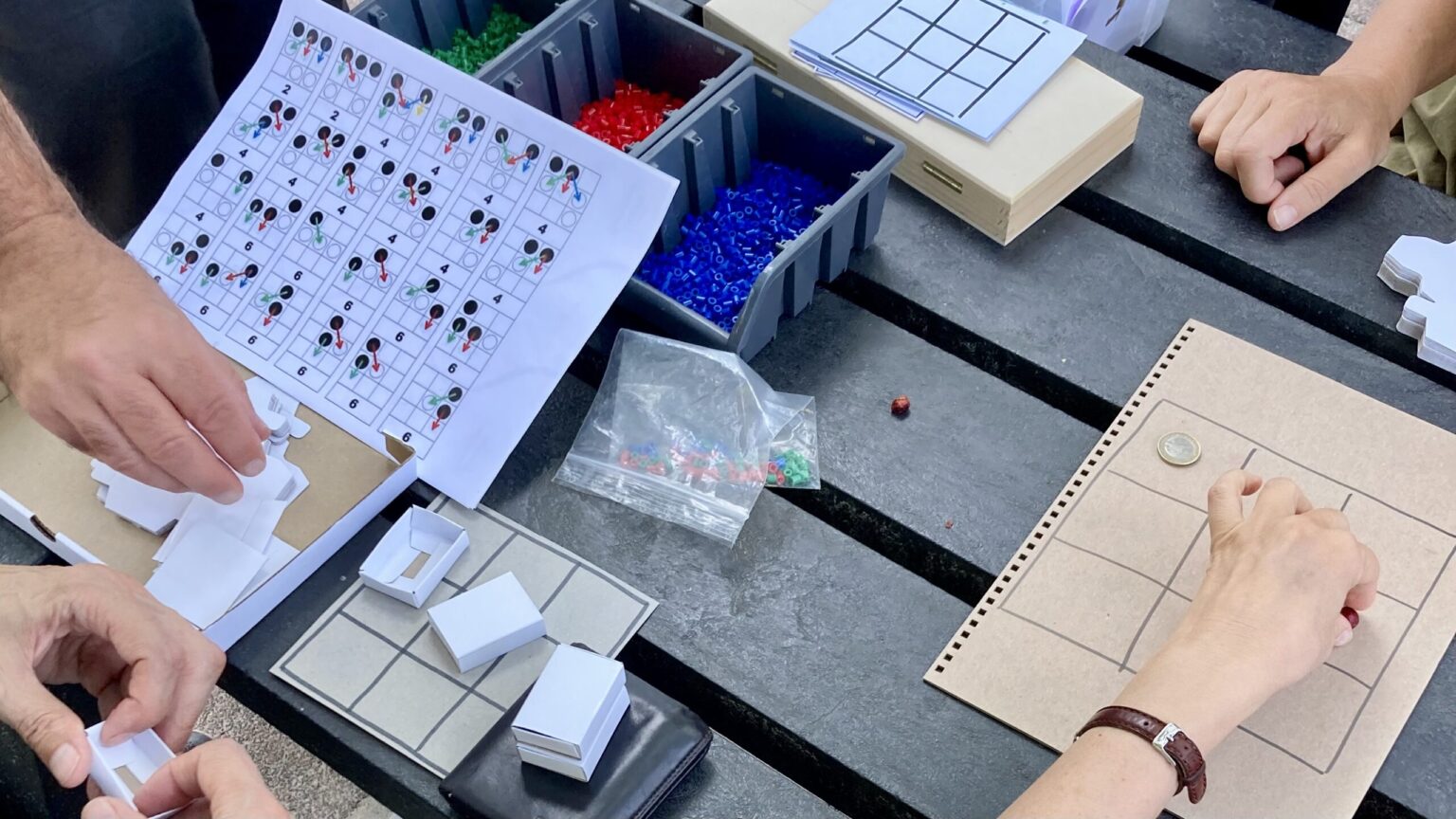
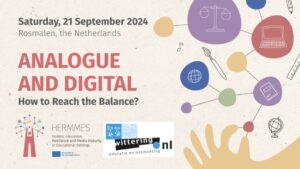
After the presentation of the emerging project results, Clara Aerts from the International Association of Steiner Waldorf Early Childhood Education discussed the very origins of the words analogue, digital, and the concept of balance. She pointed that the task as educators should be to first create an environment for the children that is based in actual time and space, which is what the analogue tools allow us to do.
Only when children become familiar with the time and space around them can we gradually introduce them to digital tools that allow them to overstep these boundaries.
In his closing speech, Christopher Clouder from the European Network of Steiner Waldorf Parents, reminded us of the fundamental tasks of parents and educators. These are not to hover over our children every step of the way, but to be the stable ground from which children can find their direction, and take and develop what they need to step into the world and their future confidently. This includes setting the base of their perception in the real world, but equipping them with capacities they will need to thrive in the digitalised world.
Clara Aerts from IASWECE and Marianne Rongen from Wittering.nl explored how to be intentional with our attention in the time of countless distractions – ringtones of incoming messages or notifications, infinite scrolls on social media, billboards, TV, and radio blasts. In the workshop, the participants tried out methods for restoring their ability to focus and could recognise the importance of building this capacity in children from the early years.
With Prof. Dr Paula Bleckmann from Alanus University and Dr Robert Neumann from Freie Hochschule in Stuttgart, the workshop participants tried out analogue ways of learning informatics skills. From decoding secret languages to unlocking the basic principles of artificial intelligence, these activities are entirely unplugged and highly insightful, created for pupils in primary and secondary schools.
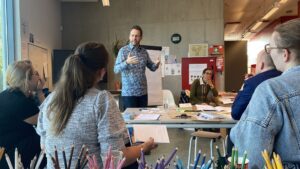
Ulrike Sievers from the eLearning Waldorf platform, Hilary Siddons from Scuola Novalis, and Dr Robert Neumann provided a workshop on building critical data and information literacy for secondary school students. The participants used and analysed three different types of data and reflected on the importance of contextualisation and critical thinking when processing information.Only when children become familiar with the time and space around them can we gradually introduce them to digital tools that allow them to overstep these boundaries.
Dr Julia Kernbach from the Alanus University and Arja Krauchenberg from European Parents’ Association shared a few examples on how to start conversations with parents about digital risks that their children might be facing. These so-called “door openers” allow for a non-judgemental, solution-oriented, and supportive discussion that can cover even the most sensitive and controversial topics around raising children in the digital age.
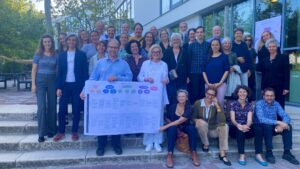
Aivar Haller, Boštjan Bobič, Petra Kogelnig, and Arja Krauchenberg from the European Parents’ Association worked with the participants on the challenge of setting boundaries for children and young people and learning how to efficiently say “no” when the health and well-being of a child is at stake. They also pointed out the importance of cooperation between parents and educational professionals but also among parents and caregivers themselves, to achieve this task.
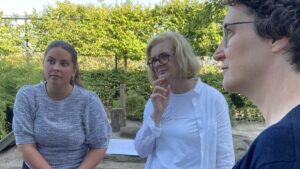
Cecília Skarka and Andrej Szolgay from the European Network of Steiner Waldorf Parents opened a discussion on bringing together the two seemingly opposing approaches to children’s use of digital technology. One approach relies on a strict set of rules and the other on self-regulation and responsibility. The solution could be found in jointly negotiating community rules with all actors in an education setting.
Date:
September 21, 2024
Event Category
Conference
Wittering.nl
Deltalaan 140, 5247 JT
Rosmalen, Netherlands + Google Map
Copyright © 2025 ECSWE
Developed by Brisk Ventures